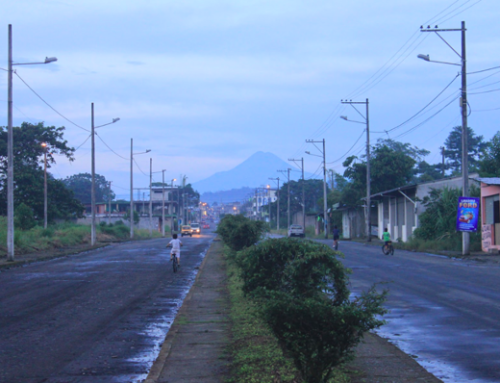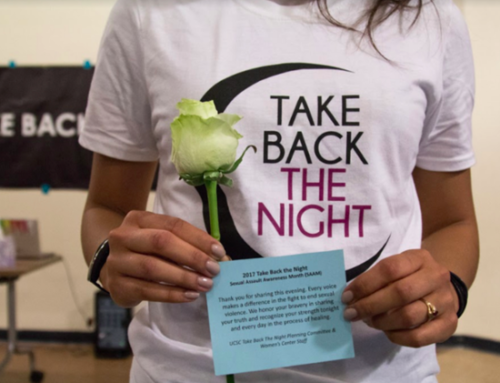One of the enduring challenges of thinking with care, anthropologically, is the polysemy of the term. It is notable, for example, that many of the calls to develop anthropological approaches to care also imply that an anthropology of care should itself signal a more caring approach to anthropology. Both within and beyond the discipline, care is regularly invoked as a necessary response—and potential corrective—to the many harms of the contemporary world, including precarity, inequity, racism, environmental crisis, and fascism. Consider the website Allegra’s implementation of a relationally-based “care review” as a corrective to the anonymity and implied harshness of standard practices of peer review. Or the call to which this essay responds, asking what care looks like in a pandemic-altered world, and how care might respond to a world that seems to be falling apart. Or a recent essay in the MIT Technology Review that offers longer-term commitments of care as a corrective to the top-down application of empathy in design thinking. This deeply felt sense that care is–should be– a reparative to what ails our discipline, our social relations, and our world is, however, in tension with anthropological analysis that suggests contested understandings of care animate practices at multiple scales in terms that are frequently both reparative and exploitative.
Care is a powerful term that travels beyond Anglophone worlds and scholarships. In order to better examine how its diverse normative meanings tangle together with ambivalent effects, anthropologists must develop nuanced analytical strategies for attending to its meanings and affordances in the world. For example, Kowalski was invited with scholars from several disciplines to offer feedback on a presentation by a research team from a Spanish-speaking country regarding an indicator toolkit designed to encourage better implementation of their country’s national health care policy. The policy was intended to decrease rates of unnecessary cesarean births and other over-medicalized interventions into the birth process. The research team drew on a normative framework bringing together feminist care ethics scholarship and Catholic social teaching. Their presentation focused on the socio-historical context of birth in this setting and the challenges of translating these sophisticated scholarly ethical traditions into the framework of policy monitoring and evaluation. After hearing the presentation, Kowalski asked a typical anthropological question about how “care” was translated: “‘Care’ is kind of an odd word in English. It crosses different terrains of meaning in a way that can be difficult to translate into other languages.” For example, in Hindi, the language of her own research setting, “care” as in “health care,” “care” as in “caring about,” and “care” as in “caring for kin” are completely different constructions—constructions that speakers don’t necessarily see as connected to a single meaning. “So how are you thinking about translating ‘care’ in this context?”
The answer Kowalski received showed that while listening to the presentation, she had made a serious category error about how the term care operated for the speakers. Thinking like a typical ethnographic observer, she assumed that “care” was a category of practice for the research group and that, as a result, it should be analyzed in terms of how it appeared in Spanish, the language of practice in the setting. Her question reflected a concern that the use of the word in feminist care ethics, written largely by academics from the United States, could risk imposing ethnocentric categories, thereby failing to capture the reality of “care” or other relevant categories of meaning on the ground. But one of the project leaders set her straight, explaining that the group was drawn to the English category of “care” precisely because of how it could move across different categories and settings. Care provided a framework for generating concrete, measurable indicators to evaluate in practice. For the purposes of these researchers, these indicators captured the relevant categories of practice—concrete activities that, in a busy and complex health care setting, could be easily counted or measured and ultimately provide the kind of data that could be used to convince hospital administrators or government policy makers. Care was the analytic category that motivated them to pull these indicators together, and to embark on the project in the first place.
This interdisciplinary team operated in a field where there was a clear break between the normative commitments motivating their desire to reform national health policy and the seemingly value-neutral tools of measurement and analysis used to advocate for those reforms. Anthropology, however, is deeply and productively aware of the extent to which all tools of data collection and analysis are saturated with values. Yet the urgency and moral appeal of care as a category means it sometimes escapes this critical approach. In this piece we argue that by clarifying how we use care as a category to both observe the world and analyze it, we can avoid naturalizing and obscuring the dynamics of hierarchy and power that intersect with practices and interpretations of care. Our aim is to make care more potent both as a category of comparative analysis and a tool for enriching our political imaginations.
When key analytic terms overlap with multiple categories of practice, as they do with care, we have found it helpful to adapt the model proposed by Rogers Brubaker and Frederick Cooper as they worked through a similar entanglement with the term “identity”. The sociologist and historian begin their argument by describing the varied and muddled uses of the term “identity” in scholarship, the political sphere, and everyday life (Brubaker and Cooper, 2000, 2-4). In these diverse contexts, identity takes on different meanings with different qualities of fixedness or flexibility and can become so ambiguous that it can mean “nothing at all” (1). In order to clarify the concept of identity, they draw on the concepts of categories of practice and categories of analysis. By categories of practice, they mean an interpretive category deployed by our research interlocutors (similar to Bourdieu’s concept of “folk” or “native” knowledge), while categories of analysis are heuristic categories for analyzing and connecting those observations to themes that matter to a specific scholarly audience. Brubaker and Cooper argue that identity (along with other concepts like “race” and “nation”) can too easily move from a category of practice to a category of analysis, thereby reifying folk understandings of these concepts. They urge scholars to “avoid unintentionally reproducing or reinforcing such reification by uncritically adopting categories of practice as categories of analysis” (5). We argue that care, as a polysemic category, risks similar reification when uncritically deployed as a simultaneous category of analysis and practice in our work.
To avoid such reification, we suggest that anthropologists more clearly identify whether they are using care as a category of practice or category of analysis and question its shifting meanings and politics. For example, Brubaker and Cooper ask us to consider how identity is constituted both in everyday life and by governments, noting that subjective processes of identification do not flow directly from government determinations. Similarly, we are interested in distinguishing how care is understood and constituted in everyday practices, as well as how such practices are related to expert determinations or institutional norms. This approach denaturalizes our understanding of care as something that always already exists. It also encourages us to ask how particular relations—shaped by gender, race, class, and other intersecting modes of inequality—emerge in certain “structural or conjunctural settings” (28) such that they are seen as constituting relations of care. Scholars have shown how discourses of care draw attention to the politics of interdependence across generations, species, and scales. At the same time, the reparative aspirations expressed in discussions about care frequently naturalize the deeply gendered, racialized, and classed dynamics of existing care relations. In conveying normative assumptions, how do our categories constrict or open political imagination (Brubaker and Cooper 2000, 33)?
By drawing on the analytic precision offered by distinguishing categories of practice from categories of analysis, we can move towards better communicating these insights, both in terms of debates about care within our own discipline and interventions with practitioner-facing audiences, such as the research team working to demedicalize birth discussed at the beginning of this piece. As a result, we can offer rich insights about the possibilities and risks of care to audiences beyond anthropology.
*Postcard/thumbnail image feature: Photo by Mona Eendra on Unsplash.
References
Ackerman, Rebecca. 2023. “Design thinking was supposed to fix the world. Where did it go wrong?” MIT Technology Review. February 9, 2023. https://www.technologyreview.com/2023/02/09/1067821/design-thinking-retrospective-what-went-wrong/
Brubaker, Rogers, and Frederick Cooper. 2000. “Beyond ‘Identity.’” Theory and Society 29, 1: 1-47.http://www.jstor.org/stable/3108478.
Collier, Jane Fishburne and Sylvia Junko Yanagisako. 1987. “Toward a Unified Analysis of Gender and Kinship.” In Gender and Kinship: Essays Towards a Unified Analysis. Jane Fishburne Collier and Sylvia Junko Yanagisako, eds. Pp. 14-50. Stanford: Stanford University Press.
“Who cares? Peer-review at Allegra.” Allegra Lab. February 2022. https://allegralaboratory.net/who-cares-peer-review-at-allegra/
Jessica Robbins-Panko is an Associate Professor in the Department of Anthropology and the Institute of Gerontology at Wayne State University. Her research interests are aging and the life course, kinship, personhood, memory, postsocialist studies, Poland, and the United States. Her first book, Aging Nationally in Contemporary Poland: Memory, Kinship and Personhood, was published in 2021 by Rutgers University Press.
Julia Kowalski is an Assistant Professor of Global Affairs and a concurrent faculty member in the Gender Studies Program at the University of Notre Dame. Her research interests are gender, kinship, women’s rights, personhood, gendered violence, everyday institutional practices, and North India. Her first book, Counseling Women: Kinship against Violence in India, was published in 2022 by the University of Pennsylvania Press.
Elana Buch is an Associate Professor in the Department of Anthropology at the University of Iowa. Her research interests are care, aging, the body, labor, kinship, inequality, social policy, and the United States. Her first book, Inequalities of Aging: Paradoxes of Independence in American Home Care, was published in 2018 by NYU Press, and received the 2020 Eileen Basker Memorial Prize from the Society for Medical Anthropology.




